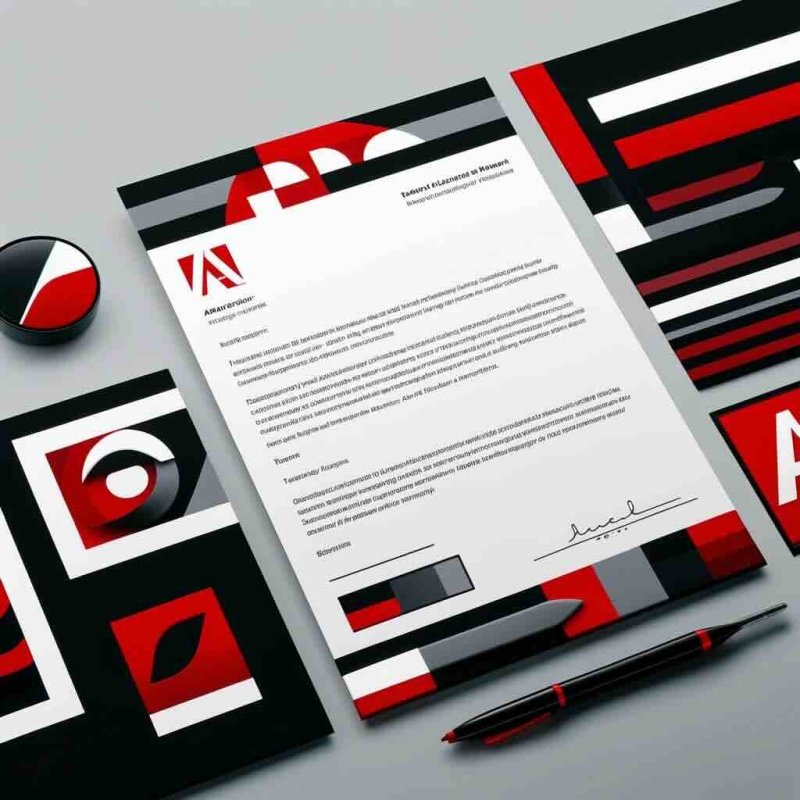Acing your IFRS 16 Interview questions. 15+ questions
Are you considering implementing the International Financial Reporting Standard (IFRS) 16 in your organization? As one of the most significant changes to financial reporting rules seen in nearly twenty years, many considerations need to be taken into account.
To comprehensively understand and get important information in this process, asking targeted interview questions can be extremely helpful. Read on for our definitive list of IFRS 16 interview questions when making this important decision!
Essential Reading
- How to nail IFRS interview questions
- Accounting interview questions for all finance roles
- Acing the "Why should we hire you question"
- Craft your perfect resignation letter with 12 formats
- Managerial round Interview questions
IFRS 16 Interview Questions
What is IFRS 16, and when did it become effective?
IFRS 16 is an International Financial Reporting Standard that requires lessees to recognize most leases on the balance sheet as a right-of-use asset and a corresponding lease liability. It was issued by the International Accounting Standards Board in 2016 and became effective for most companies in 2019.
What is the main difference between IFRS 16 and the previous leasing standard, IAS 17?
Under IAS 17, lessees were required to classify leases as either finance leases or operating leases. Finance leases were recognized on the balance sheet as a liability and an asset while operating leases were recognized only in the income statement. IFRS 16 removes the distinction between finance and operating leases and requires all leases to be recognized on the balance sheet.
How do lessees determine the lease liability and right-of-use asset under IFRS 16?
The lease liability is the present value of the future lease payments, discounted at the lessee's incremental borrowing rate. The right-of-use asset is the lease liability plus any initial direct costs and lease payments made at or before the commencement date. The asset is then depreciated over the lease term.
How do lessors account for leases under IFRS 16?
Lessors continue to classify leases as sales-type, direct financing, or operating leases and apply the appropriate accounting depending on the classification. Sales-type leases and direct financing leases are accounted for similarly to finance leases under IAS 17, with the leased asset recognized as a receivable and any profit or loss recognized upfront. Operating leases are accounted for similarly to IAS 17, with the leased asset remaining on the lessor's balance sheet and lease income recognized straight-line over the lease term.
How has the adoption of IFRS 16 affected companies' financial statements?
The adoption of IFRS 16 has generally resulted in recognition of additional assets and liabilities on the balance sheet for lessees. This has increased their leverage ratios and potentially their borrowing costs but has also resulted in the recognition of additional depreciation and interest expenses in the income statement. The impact on lessors has been less significant, as most operating leases were already recognized on the balance sheet under IAS 17.
How does IFRS 16 apply to short-term leases and leases of low-value assets?
Short-term leases with a term of 12 months or less, or leases of low-value assets (such as personal computers or small tools), are exempt from the recognition and measurement requirements of IFRS 16. Instead, lessees may recognize the lease payments as an expense on a straight-line basis over the lease term.
How does IFRS 16 apply to lease modifications?
If a lease modification results in extending the lease term or adding new leased assets, it is treated as a separate lease and accounted for under IFRS 16. If the modification does not result in a substantial change to the lease's economics, it is accounted for as a lease amendment, and the lease liability and right-of-use asset are adjusted to reflect the amended terms.
How does IFRS 16 apply to leases of intangible assets?
Intangible assets leased under IFRS 16 are accounted for in the same way as tangible assets, with the lessee recognizing a right-of-use asset and a corresponding lease liability. The right-of-use asset is then amortized over the shorter of the lease term or the useful life of the intangible asset.
How does IFRS 16 apply to leases with options to purchase the leased asset?
If a lease includes an option to purchase the leased asset at an expected price, the lessee must determine whether the option is reasonably sure to be exercised. If it is, the lease is accounted for as a finance lease. If it is not, the lease is accounted for as an operating lease.
How does IFRS 16 apply to leases with variable lease payments?
Leases with variable lease payments (such as those based on an index or a rate) are accounted for using the principle of "substance over form". This means that the lessee must consider the underlying economic substance of the lease, rather than the form of the payments, to determine the appropriate lease classification and accounting treatment.
How does IFRS 16 apply to leases with multiple components, such as both a tangible asset and a service component?
Leases with multiple components, such as tangible and service assets, must be allocated between the components based on their relative standalone prices. The lease liability and right-of-use asset are then calculated based on the allocated amount for the tangible asset. The service component is recognized as an expense in the income statement as it is incurred.
How does IFRS 16 apply to leases with renewal or termination options?
Leases with renewal or termination options are accounted for based on the expected outcome at the commencement date. If it is reasonably sure that the option will be exercised, the lease term is adjusted to reflect its expected exercise. If the outcome is not reasonably specific, the option is treated as uncertainty, and the lease term is not adjusted.
How does IFRS 16 apply to leases with residual value guarantees?
A residual value guarantee is a promise by the lessor to pay the lessee the difference between the residual value of the leased asset and the fair value at the end of the lease term. If the lessor provides a residual value guarantee, the lessee must consider the impact of the guarantee on the measurement of the lease liability and right-of-use asset. The lessee may need to adjust the discount rate or the expected residual value to reflect the impact of the guarantee.
How does IFRS 16 apply to leases with a change in the discount rate during the lease term?
If the discount rate used to calculate the present value of the future lease payments changes during the lease term, the lessee must adjust the lease liability and right-of-use asset to reflect the change in the discount rate. The adjustment is recognized in the income statement as an adjustment to the interest expense on the lease liability.
How does IFRS 16 apply to leases with a change in the term or other lease terms during the lease term?
If the lease term or other lease terms change during the lease term, the lessee must adjust the lease liability and right-of-use asset to reflect the change in the lease terms. The adjustment is recognized in the income statement as an adjustment to the amortization expense of the right-of-use asset and the interest expense on the lease liability.
Summing up
As you can see, there are many important factors to consider when implementing IFRS 16 in your organization. Asking targeted interview questions is invaluable for gaining insights and information during this process.
Here at Eduyush, we offer a comprehensive IFRS certification course to help you make the best decision for your organization. With our expert guidance, you'll be able to navigate this complicated issue confidently. Contact us today to learn more!
Interview Questions? Answers.
- Accounting Interview questions and answers
- Accounts receivable interview questions
- Accounts payable interview questions
- ESG Interview questions
- Forensic accountant interview questions
- Financial controller interview questions
- GST interview questions
- IFRS interview questions and answers
- IFRS 15 interview questions and answers
- IFRS 17 Interview Questions and answers
- IFRS 9 Interview Questions and Answers
- IFRS 16 Interview Questions and answers
- Managerial round interview questions and answers
- Blockchain interview questions for finance professionals
It's important to dress professionally for an interview. This usually means wearing a suit or dress pants and a button-down shirt for men, and a suit or a dress for women. Avoid wearing too much perfume or cologne, and make sure your clothes are clean and well-maintained.
It's best to arrive at least 15 minutes early for the interview. This allows you time to gather your thoughts and compose yourself before the interview begins. Arriving too early can also be disruptive, so it's best to arrive at the designated time or a few minutes early.
It's a good idea to bring a few key items to an interview to help you prepare and make a good impression. These might include:
- A copy of your resume and any other relevant documents, such as references or writing samples.
- A portfolio or sample of your work, if applicable.
- A list of questions to ask the interviewer.
- A notebook and pen to take notes.
- Directions to the interview location and contact information for the interviewer, in case you get lost or there is a delay.
t's generally not appropriate to bring a friend or family member to an interview, unless they have been specifically invited or are necessary for accommodation purposes.
If you are running late for an interview, it's important to let the interviewer know as soon as possible. You can try calling or emailing to let them know that you are running behind and to give an estimated arrival time.
If possible, try to give them a good reason for the delay, such as unexpected traffic or a last-minute change in your schedule. It's also a good idea to apologize for the inconvenience and to thank them for their understanding.
- It's generally a good idea to address the interviewer by their professional title and last name, unless they specify otherwise. For example, you could say "Mr./Ms. Smith" or "Dr. Jones."
Yes, it's perfectly acceptable to ask about the company's culture and benefits during the interview. In fact, it's often a good idea to ask about these things to get a better sense of whether the company is a good fit for you. Just make sure to keep the focus on the interview and not get too far off track.
It's okay to admit that you don't know the answer to a question. You can try to respond by saying something like: "I'm not sure about that specific answer, but I am familiar with the general topic and would be happy to do some research and get back to you with more information."
Alternatively, you can try to answer the question by using your own experiences or knowledge to provide context or a related example.
It's generally best to wait until you have received a job offer before discussing salary and benefits.
If the interviewer brings up the topic, you can respond by saying something like: "I'm open to discussing salary and benefits once we have established that we are a good fit for each other. Can you tell me more about the overall compensation package for this position?"
It's important to remember that employers are not allowed to ask questions that discriminate on the basis of race, religion, national origin, age, disability, sexual orientation, or other protected characteristics. If you are asked an illegal question, you can try to redirect the conversation back to your qualifications and skills for the job.
For example, you might say something like: "I'm not comfortable answering that question, but I am excited to talk more about my skills and experiences that make me a strong fit for this position."
It's okay to admit that you don't understand a question and to ask for clarification. You can try saying something like: "I'm sorry, I'm not sure I fully understand the question. Could you please clarify or provide some more context?"
At the end of the interview, thank the interviewer for their time and express your interest in the position. You can also ask about the next steps in the hiring process and when you can expect to hear back. Finally, shake the interviewer's hand and make sure to follow up with a thank-you note or email after the interview.












Leave a comment